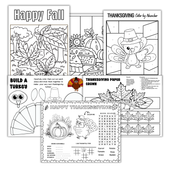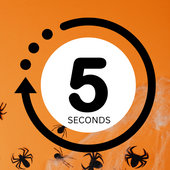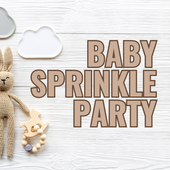
Growth Mindset for Teens
Growing up as a teen can be a time of great change, exploration and growth. Developing a growth mindset has become increasingly important in recent years, as it can provide teens with the resilience they need to improve upon their current circumstances.
Teaching teenagers how to think positively and realistically about their endeavors is the key to helping them succeed down the line – whether it be at school or in adulthood.
Adopting a growth mindset can help you to embrace challenges and learn from failures, ultimately leading to greater success and fulfillment in all areas of your life. Here we will explore what a growth mindset is and how teens can cultivate it.

What is a Growth Mindset?
A growth mindset is the belief that one’s abilities and intelligence can be developed through hard work, persistence, and dedication. It is the opposite of a fixed mindset, which assumes that intelligence and abilities are set in stone and cannot be changed.
When you have a growth mindset, you embrace challenges and see failure as an opportunity for growth and learning, rather than a setback.
What is a Fixed Mindset?
A fixed mindset refers to a belief that our abilities, intelligence, and talents are innate traits that cannot be significantly changed or improved. When someone has a fixed mindset, they tend to avoid challenges, give up easily and view failure as a reflection of their limitations.
This mindset can hinder personal growth and development and lead to a fear of taking risks or stepping outside one's comfort zone.
Fixed Mindset Examples
- "I'm just not good at math." - A student with a fixed mindset might avoid math-related activities or homework because they believe they are inherently bad at math and cannot improve.
- "I'll never be as smart as them." - A person with a fixed mindset might compare themselves to others and believe that intelligence is a fixed trait.
- "I can't learn a new language; it's too late for me." - An individual with a fixed mindset might believe that age limits their ability to learn new skills.
- "I won't even attempt that task; I'll just fail." - Someone with a fixed mindset may shy away from challenges because they fear failure.
- "I've never been artistic, so there's no point in trying to draw." - A person with a fixed mindset might avoid creative pursuits because they believe they lack talent.
- "I've always been shy; I can't change who I am." - A fixed mindset can lead someone to believe that personality traits are rigid and unchangeable, preventing personal growth and self-improvement.
- "I'm not a natural-born leader, so I'll never be able to manage a team." - A person with a fixed mindset might avoid leadership roles because they believe leadership skills can not be developed through practice and experience.
- "I don't want to try out for the team because I might embarrass myself." - Fear of embarrassment and failure can cause someone with a fixed mindset to avoid taking risks or trying new activities.
It's important to note that fixed mindset thinking is not permanent, and individuals can transition to a growth mindset with effort, self-awareness, and a willingness to embrace challenges and learn from failures.
Cultivating a Growth Mindset
Developing a growth mindset takes practice, but it is a skill that can be learned. Here are some strategies to help teens cultivate a growth mindset:

- Embrace challenges: Instead of avoiding challenges, seek them out. Challenges are an opportunity to learn and grow.
- Encourage learning from mistakes: Failure can be a valuable learning opportunity. Encourage teens to view mistakes as a chance to learn and grow rather than as a sign of weakness.
- Practice perseverance: Cultivate a “never give up” attitude. Persistence is key to developing a growth mindset.
- Learn from criticism: Instead of taking criticism personally, view it as an opportunity to improve and grow.
- Celebrate progress: Instead of focusing solely on the end result, celebrate the progress you make along the way. Every step forward is a step in the right direction.
- Emphasize the importance of effort: Encourage teens to focus on their efforts rather than their abilities. Praising their hard work and determination can help them develop a growth mindset.
- Provide challenges and opportunities for growth: Help teens find challenges and opportunities to develop new skills and abilities. This could be through extracurricular activities, volunteering, or taking on new responsibilities at home or school.
- Encourage reflection and self-assessment: Encourage teens to reflect on their progress and identify areas for improvement. This can help them set goals and develop a plan for achieving them.
Benefits of a Growth Mindset
Adopting a growth mindset can have numerous benefits for teens. Some of these benefits include:
- Increased motivation: When you believe that your efforts can lead to success, you are more motivated to put in the work.
- Greater resilience: When you see failure as an opportunity for growth, you become more resilient and better able to bounce back from setbacks.
- Improved relationships: When you are open to feedback and willing to learn from others, you are better able to form positive relationships.
With the right coaching and resources, teens can learn how to approach life with flexibility and openness, better equipping them in times of challenge and adversity.
It’s no wonder that parents and educators alike are encouraging young minds towards this sort of mental training – providing them with the invaluable tool of personal growth every step of the way.
Teenage Growth Mindset Journal
A teenage growth mindset planner/journal can be immensely beneficial for young adults as they learn to navigate their lives. It provides a tool to journal any struggles and successes in order to help identify how challenges are approached and conquered.
With the help of affirmations, teens can reinforce their natural resilience and bolster the self-confidence necessary for navigating through life’s hurdles.
Embracing a proactive approach by recording daily experiences allows teenagers to utilize the collected wisdom that reinforces an edifying outlook on life’s journey.
Growth Mindset Quotes for Kids
To inspire and motivate young minds, we've compiled 20 powerful growth mindset quotes to instill a positive and resilient outlook on life.

- "Mistakes are proof that you are trying, learning, and growing."
- "I can't do it yet, but I will keep trying until I can."
- "The more I practice, the better I become."
- "I am not afraid of challenges because they make me stronger."
- "I believe in myself and my abilities to overcome any obstacle."
- "When I struggle, I see it as an opportunity to learn something new."
- "I am not perfect, and that's okay. I can always improve and grow."
- "I may not understand it now, but with time and effort, I will figure it out."
- "I am not in competition with others; I am in competition with myself to become better."
- "Every day is a chance to learn and make progress."
- "I will embrace challenges as stepping stones to success."
- "I am not discouraged by failure, as it is an essential part of the learning process."
- "I can achieve anything I set my mind to with hard work and dedication."
- "I will not give up, even when things get tough. I will keep going."
- "I learn from others' successes and use them as inspiration for my own journey."
- "I am not limited by what I know now; I can always learn more."
- "Effort is the key to unlocking my full potential."
- "I will face challenges with a positive attitude and a determined spirit."
- "It's okay to ask for help; it's a sign of strength, not weakness."
- "I believe in the power of 'yet' - I may not know it yet, but I will."
Growth Mindset Affirmations
A growth mindset affirmation is a statement that reinforces the belief that abilities can be developed through dedication and effort. By regularly repeating these empowering affirmations, we can rewire our thought patterns and cultivate a growth-oriented perspective.
Here are some growth mindset affirmations to help with personal growth and unlock our full potential.
- "I embrace challenges as opportunities for growth and learning."
- "Effort is the path to success, and I am willing to put in the work."
- "Mistakes are stepping stones to improvement; I learn from them and move forward."
- "I am not limited by my current abilities; I can always improve and learn."
- "I am resilient and can bounce back from setbacks with determination."
- "With each challenge, I become stronger and more capable."
- "I believe in myself and my ability to overcome any obstacle."
- "I am open to feedback and see it as a chance to grow and improve."
- "Every day, I am becoming better, wiser, and more confident."
- "I am not afraid to ask for help when I need it; seeking support is a sign of strength."
- "My potential is limitless, and I am constantly discovering new strengths within me."
- "I welcome change as an opportunity for growth and self-discovery."
- "I am the master of my thoughts, and I choose positivity and optimism."
- "I celebrate the success of others and use it as inspiration for my own journey."
- "I am not defined by my past; my future is filled with possibilities."
- "Obstacles do not deter me; they challenge me to find creative solutions."
- "I am in control of my attitude, and I choose to approach challenges with a growth mindset."
- "I am continuously learning and growing, and that is what matters most."
- "I am persistent and will not give up on my dreams and goals."
- "Each day is an opportunity for progress, and I embrace it wholeheartedly."

Developing a growth mindset can have numerous benefits, including increased resilience, perseverance, and a love of learning. By emphasizing the importance of effort, encouraging learning from mistakes, providing challenges and opportunities for growth, modeling a growth mindset, we can help kids and teens develop a growth mindset that will serve them well in all areas of their lives.
With a growth mindset, teens can achieve their goals, greater success, build stronger relationships, overcome obstacles, and continue to learn and grow throughout their lives.























































































































































































































































































































